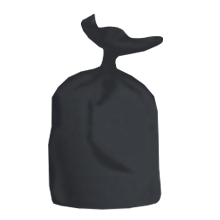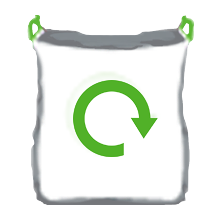Tuesday 21 September 2021
The Civil Contingencies Authority is announcing further changes to the rules for travel into the Bailiwick and the rules for cases and contacts of cases identified in the Bailiwick.
The changes will take effect in two stages, with some changes coming into effect on 23 September and the other changes coming into effect on 4 October. This will see the Bailiwick's border rules align much more closely with the UK's, for the first time since the beginning of the pandemic more than a year ago. It will also mean fewer restrictions overall for travel into the Bailiwick, opening up more options for people to be able to see friends, family and loved ones, and for those wanting to relocate as well as more economic opportunities.
Changes effective from 23 September:
From 23 September, persons who can provide proof that they have received a full course of an approved Covid-19 vaccine (AstraZeneca, Pfizer, Moderna and Jannsen), regardless of where they received their vaccine doses, will be eligible to benefit from reduced restrictions on arrival into the Bailiwick of Guernsey.
People who test positive for COVID-19 will be required to isolate for 10 days (compared to the current 14 days).
There will also be some changes to the general rules for people identified as the contact of a positive case:
- Anyone aged 18 or under who is a contact will not be required to self-isolate regardless of their vaccination status. They will be required to undergo lateral flow testing.
- Anyone aged 19 or over who is fully vaccinated will not be required to self-isolate. They will be required to undergo lateral flow testing and take a single PCR test.
- Anyone aged 19 or over who is not fully vaccinated (meaning both unvaccinated or partially vaccinated) will need to self-isolate for 10 days. They will need to undertake a PCR test and will also be offered lateral flow testing.
- There may be exceptional cases that require a variation of these requirements for cases or contacts of cases, which would be determined by Public Health.
Changes effective from 4 October:
From 4 October, there will be significant changes to the rules for travel to the Bailiwick.
All travel from the Common Travel Area (the United Kingdom, Republic of Ireland, Jersey and the Isle of Man) regardless of vaccination status will be treated as a 'blue' arrival. These travellers will need to purchase and complete a course of lateral flow tests. There are no other restrictions for these travellers.
The Bailiwick will apply its highest level of restrictions to arrivals who come directly from countries on the UK's red-list without passing through the UK. These arrivals will need to carry out a self-swab PCR test on arrival at the port and self-isolate until they take a second PCR test on Day 9 and receive a negative result. Anyone travelling from a red-list country to the UK before travelling on to the Bailiwick will need to adhere to the UK's quarantine requirements before travelling onwards. Travellers coming from a red-list country into the UK will need complete their 10-day quarantine there, in line with UK rules, before travelling on to the Bailiwick. They would then arrive in Guernsey as 'blue' arrivals.
For all other countries, travel requirements will depend on whether or not the traveller is fully vaccinated. Fully vaccinated non-CTA arrivals will only be required to take a self-swab PCR test on arrival at the port but will not be required to self-isolate. Unvaccinated non-CTA arrivals will need to take a self-swab PCR test on arrival at the port, and self-isolate until they take a second PCR test on Day 8 and receive a negative result.

(*Lateral flow testing to continue for one month from the date of alignment, then reassessed)
All arrivals will still need to complete the online Travel Tracker before arriving, and this can be done 48 hours or less before their journey. From 4 October, the period of time treated as the traveller's relevant travel history will be reduced from 14 to 10 days.
Deputy Peter Ferbrache, Chair of the Civil Contingencies Authority said:
"Since we began the process of enabling more travel on the 1st July, we've seen thousands of people able to visit friends and family, and badly-affected businesses finally able to welcome customers again. Traveller numbers have increased in the past three months, and at the beginning of September we've seen around a thousand arrivals each day, while at the same time cases of COVID have remained relatively low and we've avoided overwhelming our health service. It's not been an easy transition, but on the whole it has been a successful one.
What we must all continue to do is follow the good practice, and be responsible, as we learn to live with COVID. That means taking seriously the advice to wash your hands, avoid enclosed poorly ventilated spaces where possible, respect each other's space and most of all, do not go out if you don't feel well and report any symptoms.
This next change in our travel rules means even fewer restrictions but it is still not travel as it was in pre-COVID times. It may be a long time before we get back to that, and people should be aware of the additional checks and additional form-filling that we require. Travelling to most other places is also less straightforward compared to pre-COVID times and anyone intending to travel should ensure they know what to expect."













